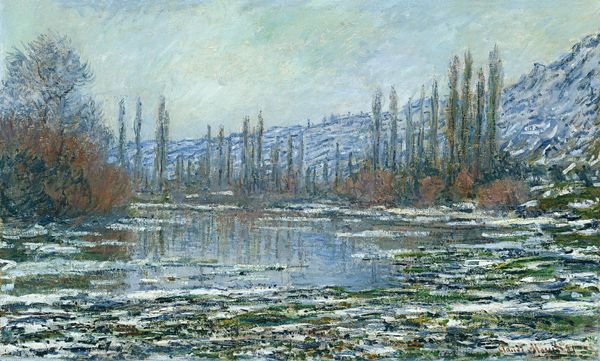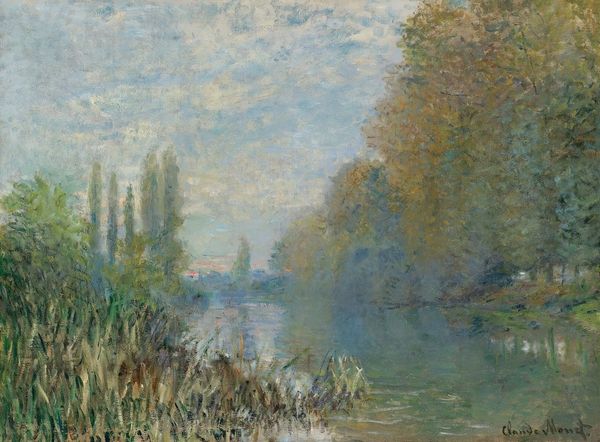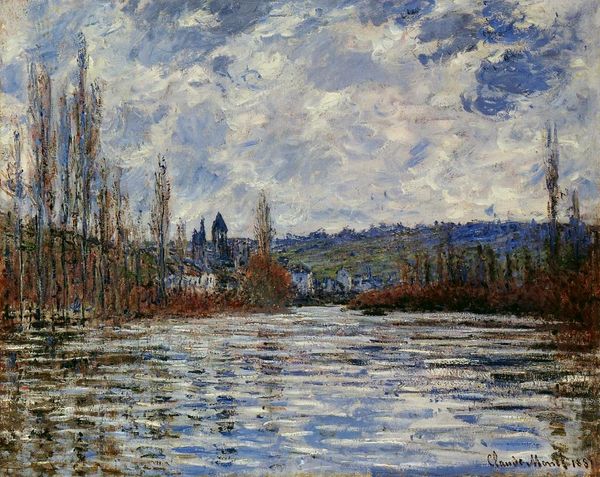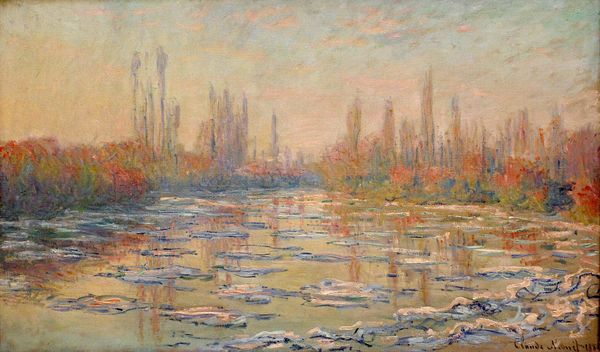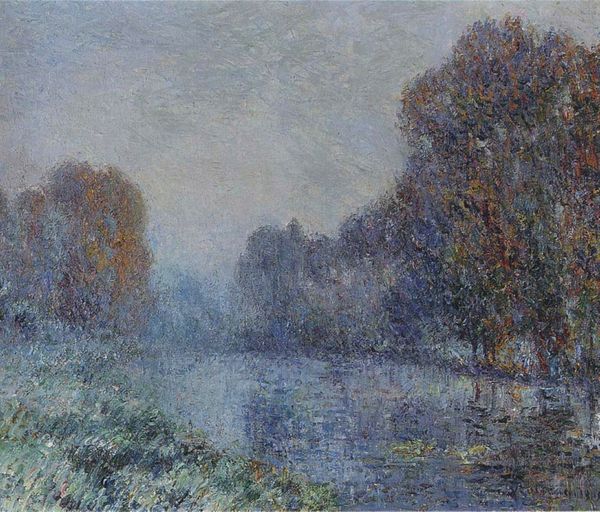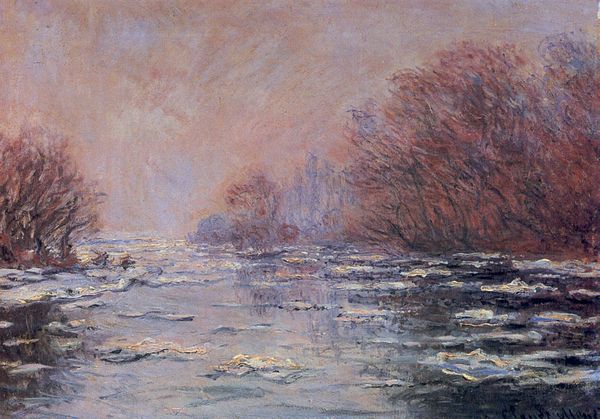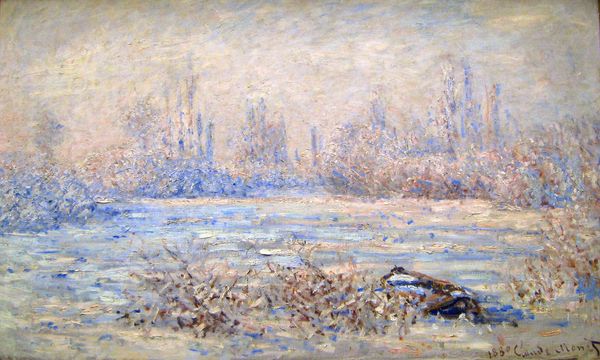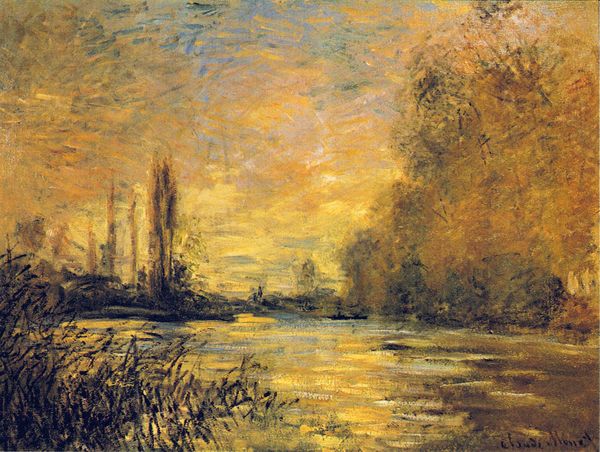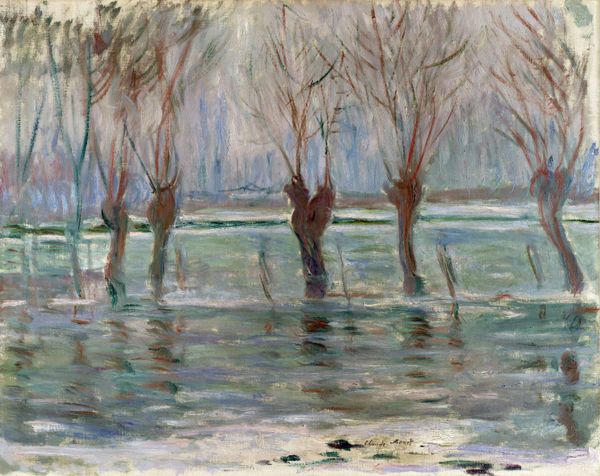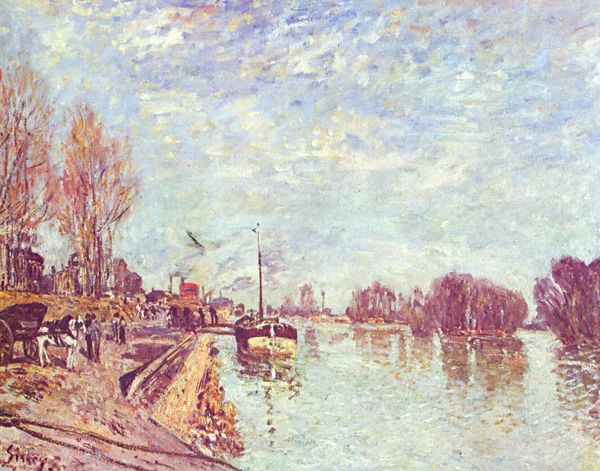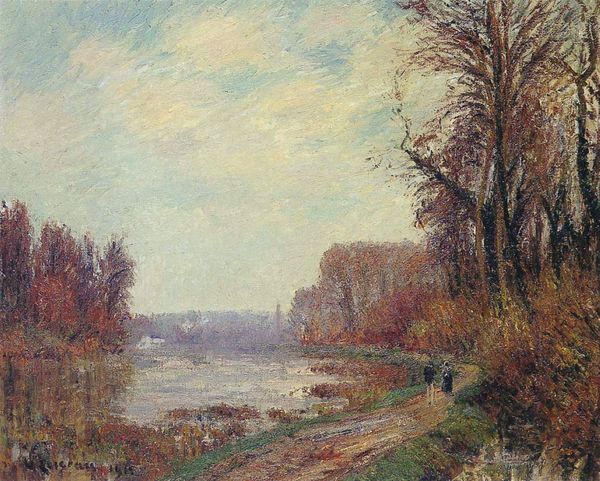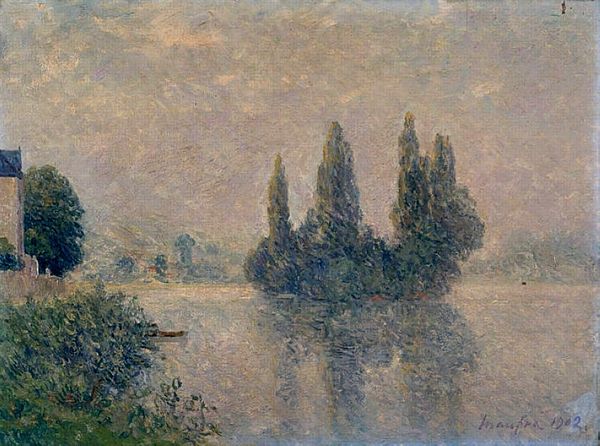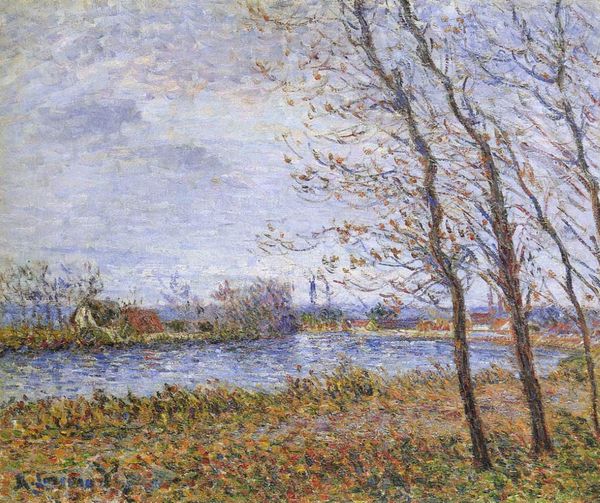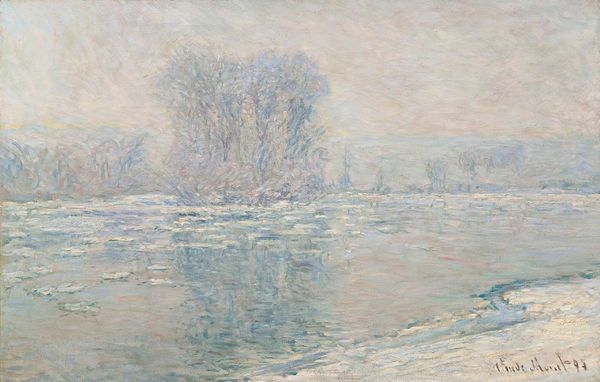
painting, plein-air, oil-paint, impasto
#
sky
#
abstract painting
#
painting
#
impressionism
#
impressionist painting style
#
plein-air
#
oil-paint
#
landscape
#
impressionist landscape
#
impasto
#
seascape
#
natural-landscape
#
water
#
cityscape
#
realism
Copyright: Public domain
Claude Monet created this oil painting, "Floating Ice Near Vetheuil," to explore the transient effects of light and atmosphere on the natural world. The artist made several paintings of the thaw on the Seine river near the village of Vétheuil during a particularly harsh winter in France. Monet and his impressionist contemporaries sought to break away from the academic traditions of the French Salon. Their artistic choices, such as painting outdoors and representing everyday subjects, challenged the established hierarchy of art. This shift reflected broader social changes in France during the late 19th century, as industrialization and urbanization transformed the landscape and traditional ways of life. Monet's focus on the fleeting beauty of a winter thaw can be seen as a commentary on the impermanence of the natural world. To understand this work more deeply, scholars consult the letters of the artist, exhibition reviews, and the writings of contemporary critics. These sources help us better grasp the cultural and historical context in which Monet created his art.
Comments
No comments
Be the first to comment and join the conversation on the ultimate creative platform.
